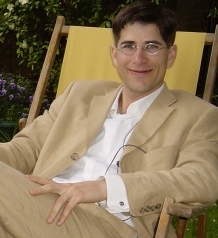"Darwin, Wallace, and Evolution:
|
The year 2009 is the bicentennial of Darwin's birthday, and 150th anniversary of the publication of his book "The Origin of Species". Darwin's theory of evolution is one of the major breakthroughs in the history of science and it is now generally accepted that "nothing in biology makes sense except in the light of evolution" (Dobzhansky).
Unfortunately, the contributions of another important British scientist, Alfred Russel Wallace, are less appreciated. Wallace had independently of Darwin developed a theory of natural selection and described his findings in a letter to Darwin in 1858. It was this letter that initiated the publication of "The Origin of Species" in 1859. Wallace conducted much of his research in Southeast Asia and collected biodiversity specimens throughout the region (including Bukit Timah Hill).
In celebration of these contributions, the Department of Biological Sciences will host this "Darwin, Wallace, and Evolution" public event and invite two prominent speakers - Dr. John van Wyhe from Cambridge University and Prof. Naomi Pierce from Harvard University will cover the historical aspects and illustrate how evolutionary theory is used in modern research.
[1] "Darwin and Wallace 150 years on,"
by John van Wyhe
About the talk - The theories of Charles Darwin and Alfred Russell Wallace have changed science, and the world, forever. Yet much of what is often written about these two men, their similarities and differences, and their debts to one another, is wrong. It has recently been claimed, for example, that Darwin stole many of his ideas from Wallace. For many years it has also been claimed that if Wallace had not sent his essay on evolution to Darwin in 1858 that Darwin never would have published his theory. This presentation will revisit the true story of Darwin and Wallace and rebut several common myths. About the speaker - John van Wyhe is a historian of science, currently based at the University of Cambridge. He is the founder and Director of Darwin Online, a website that presents the complete works of Charles Darwin with more than 90 million views since 2006. A Bye-Fellow of Christ's College (Darwin's own college), he is also a member of the British Society for the History of Science and author of "Charles Darwin: The Story of the Man and His Theories of Evolution" (2008). Van Wyhe led the restoration of Darwin's Christ's College rooms and contributing to a proposed iconography of Darwin.
About the speaker - John van Wyhe is a historian of science, currently based at the University of Cambridge. He is the founder and Director of Darwin Online, a website that presents the complete works of Charles Darwin with more than 90 million views since 2006. A Bye-Fellow of Christ's College (Darwin's own college), he is also a member of the British Society for the History of Science and author of "Charles Darwin: The Story of the Man and His Theories of Evolution" (2008). Van Wyhe led the restoration of Darwin's Christ's College rooms and contributing to a proposed iconography of Darwin.
His recent research has challenged "Darwin's delay" - the long-held view that Darwin held back or kept his theory secret for 20 years. In 2009, he publishes three books and numerous shorter items on Darwin. Committed to sharing Darwin's work, scholarship and the history of science with the wider public, Van Whye lectures and broadcasts on Darwin, evolution and the history of science around the world and has written for The Guardian, New Scientist, USA Today and The Independent.
John's webpage.
[2] "From Darwin to DNA: Evolution of blue butterflies and ants," by By Naomi Pierce
About the talk - Modern evolutionary research is still thriving on Darwin's seminal ideas about adaptation, natural selection, and the Tree of Life. Blue butterflies in the family Lycaenidae provide a model system for understanding how adaptation and natural selection have shaped organisms and generated the biodiversity we see today. This talk will focus on the complex life histories of Lycaenidae, a group whose caterpillars associate symbiotically with ants, and whose feeding preferences range from herbivory to highly specialized forms of carnivory. Reconstruction of the evolutionary history of the family using characters from both morphology and DNA reveals how interactions with ants have shaped the diversification of this group.
About the speaker - Naomi Pierce is one of the most prominent living evolutionary biologists and is an expert in the ecology and evolution of species interactions. Her research has ranged from field studies measuring the costs and benefits of symbioses between ants and other organisms, to genetic analyses of biochemical signaling pathways underlying interactions between plants, pathogens and insects. She has also been involved in reconstructing the evolutionary "Tree of life" of insects such as ants, bees, and butterflies, and in using molecular phylogenies to make comparative studies of life history evolution and biogeographical distributions.
Pierce was awarded a Macarthur Fellowship for her research on insect/ plant interactions, and has held positions at Griffith University in Australia, Oxford University in the UK, and Princeton University in the US. She is currently the Hessel Professor of Biology in the Department of Organismic and Evolutionary Biology at Harvard University, and Curator of Lepidoptera in the Museum of Comparative Zoology. She lives in Cambridge with her husband and their two daughters.
Naomi's webpage

No comments:
Post a Comment